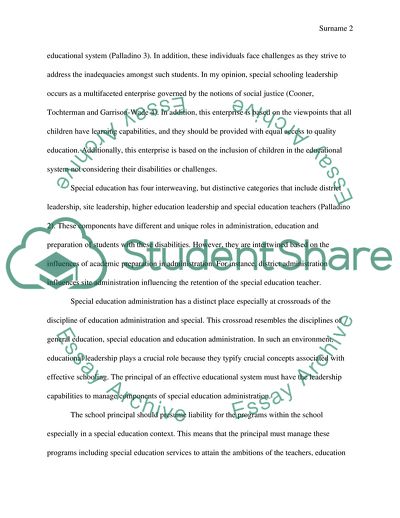Cite this document
(Preparing Principals for Leadership in Special Education Essay Example | Topics and Well Written Essays - 1250 words - 1, n.d.)
Preparing Principals for Leadership in Special Education Essay Example | Topics and Well Written Essays - 1250 words - 1. https://studentshare.org/education/1796100-critical-thinking-value-essay-special-education
Preparing Principals for Leadership in Special Education Essay Example | Topics and Well Written Essays - 1250 words - 1. https://studentshare.org/education/1796100-critical-thinking-value-essay-special-education
(Preparing Principals for Leadership in Special Education Essay Example | Topics and Well Written Essays - 1250 Words - 1)
Preparing Principals for Leadership in Special Education Essay Example | Topics and Well Written Essays - 1250 Words - 1. https://studentshare.org/education/1796100-critical-thinking-value-essay-special-education.
Preparing Principals for Leadership in Special Education Essay Example | Topics and Well Written Essays - 1250 Words - 1. https://studentshare.org/education/1796100-critical-thinking-value-essay-special-education.
“Preparing Principals for Leadership in Special Education Essay Example | Topics and Well Written Essays - 1250 Words - 1”. https://studentshare.org/education/1796100-critical-thinking-value-essay-special-education.


